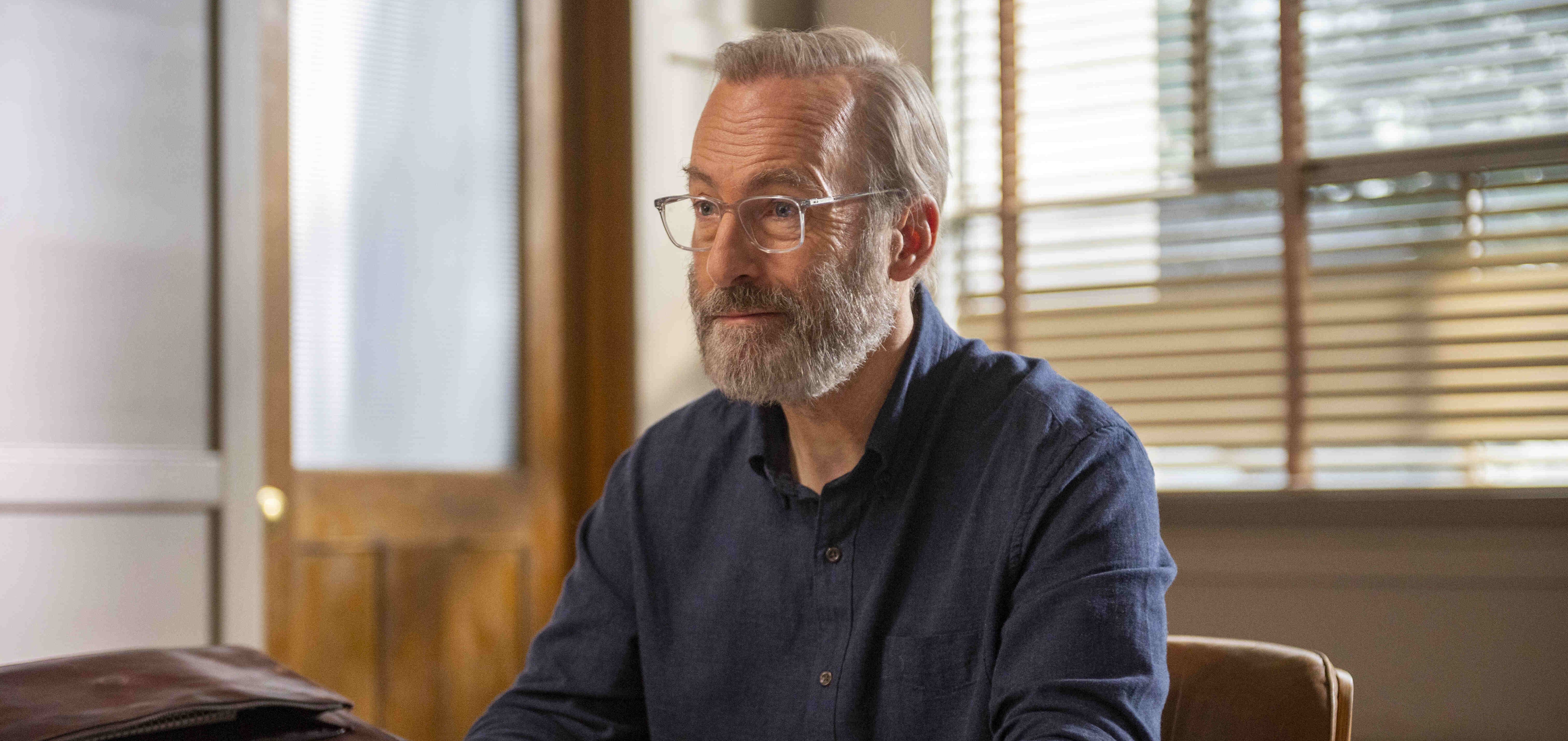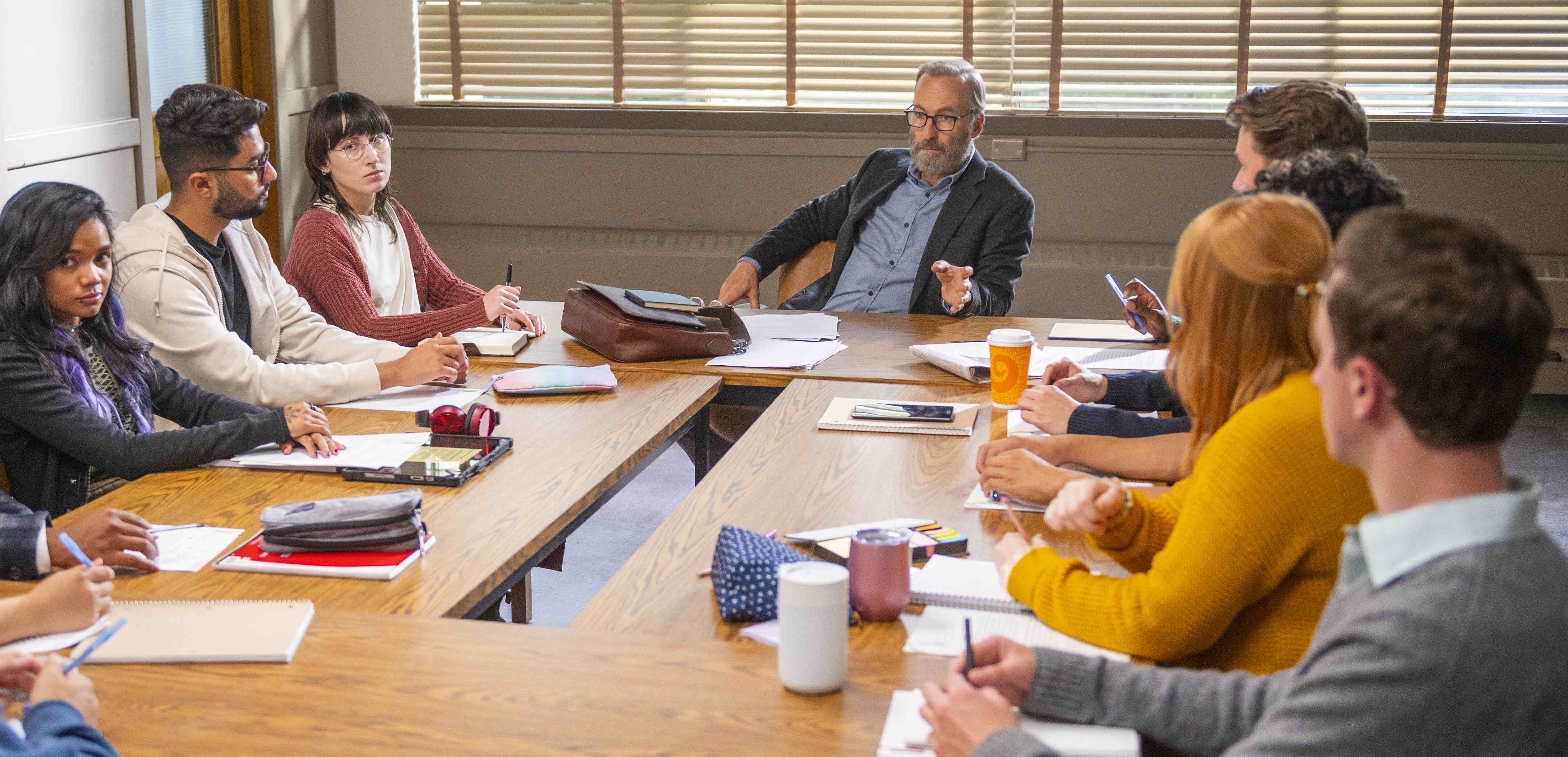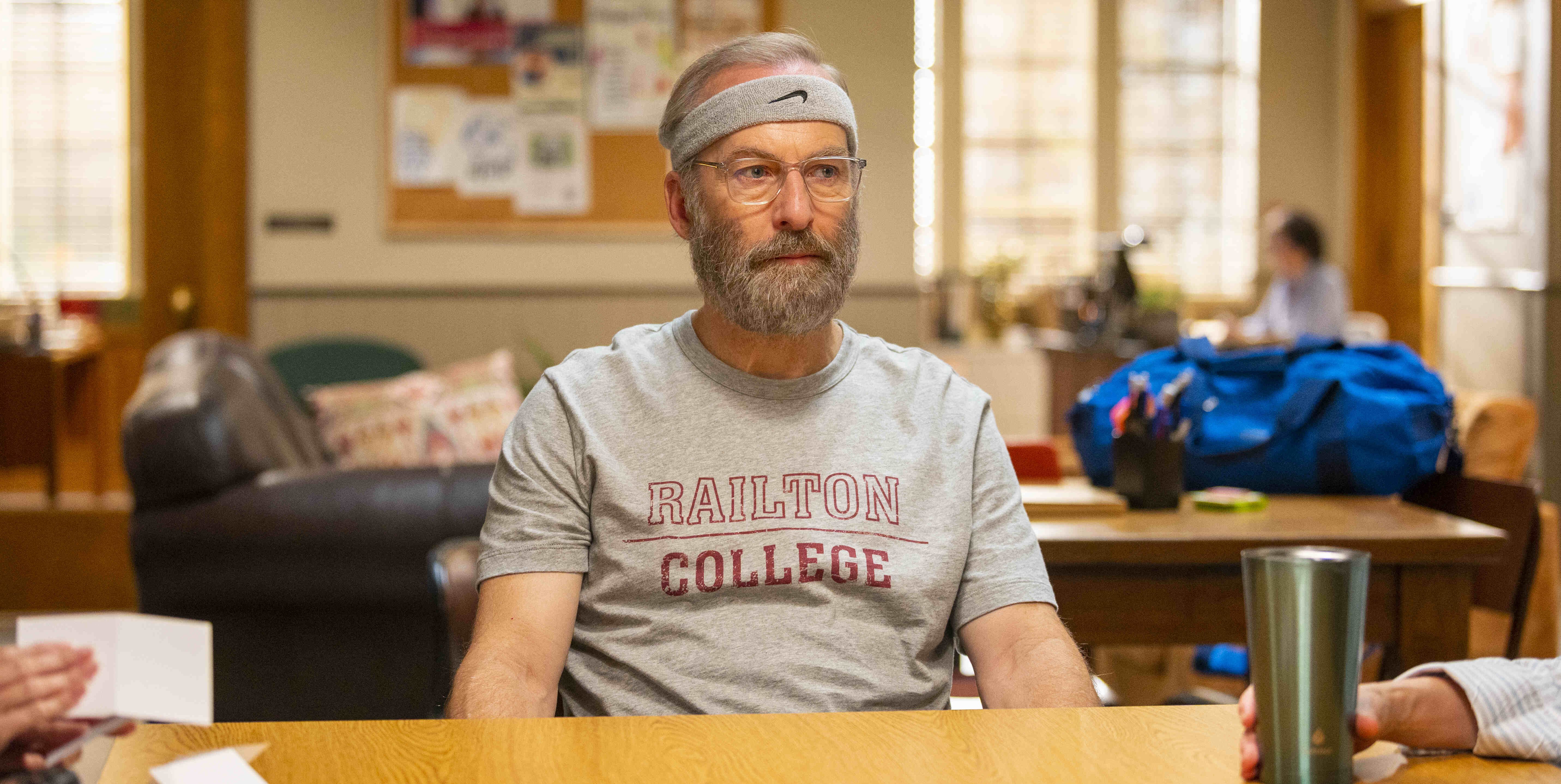AMC’s drama series ‘Lucky Hank’ follows William Henry Devereaux, Jr., an English professor at Railton College. Hank is disliked not only by his students but also by his fellow professors, who join hands together to force the former to depart from the institution for describing the same as “mediocre.” Hank also deals with the challenges that arise in his personal life as his father and renowned professor William Henry Devereaux reaches out to him for his support. Since the comedy-drama offers a nuanced portrayal of Hank’s life at Railton, the viewers must be wondering whether the professor and college have real-life counterparts. Here’s what we know about the same!
Hank Devereaux is Partially Based on an Actual Professor
Hank Devereaux is partially based on a real professor. ‘Lucky Hank’ is a television adaptation of Richard Russo’s novel ‘Straight Man.’ Russo wrote the novel drawing inspiration from his life as an English professor during the 1990s. The author had taught English, like Hank, at several distinguished educational institutions in Illinois, Connecticut, Pennsylvania, and Maine. Although Hank is not exactly a fictional counterpart of Russo, the latter’s experiences turned out to be the foundation of the former’s life in the novel and series. Several of Russo’s observations were integrated into the character.

“Straight Man was the easiest of my books to write and the funniest. Part of the reason it was the funniest was that it was the easiest,” Russo said in an interview given for Eastern Washington University’s Willow Springs. “There’s Hank suffering and trying to pass that stone, and there’s also a kind of suffering of middle age, he may be losing his wife, there’s something going on with his daughter. It’s not like there’s nothing at stake, but those stories of academic absurdity I had been storing for years,” the author added. Hank’s interactions with his colleagues are an integral part of the series. Several of these colleagues are partially based on Russo’s co-workers during the late 20th century.
Like Hank, Russo had to tolerate a dean who struggled to make the ends meet using an inadequate budget while he was working at an institution in Pennsylvania. Hank tolerating the eccentricities of Emma Wheemer can be paralleled to Russo’s experiences with a colleague, the real-life counterpart of Wheemer, at an institution in Maine. Russo also conceived Hank to explore the nuances of life as a tenured professor, which applies to several professors all over the world. This universal aspect of Hank appealed to co-developer Paul Lieberstein significantly. “I love this idea of tenure, the way you’re just trapped in success. It allows people to behave really badly,” Lieberstein said about what from the novel appealed to him, as per TheWrap.
Is Railton College a Real College?
No, Railton College is not a real college. The college is the television counterpart of the fictional West Central Pennsylvania University, where Hank teaches English in Russo’s source novel of the series. Railton, the town in which the college is located, is fictional as well. Still, Railton College can be seen as a combination of four real educational institutions where Russo taught English, which are Southern Illinois University Carbondale, Southern Connecticut State University, Penn State Altoona, and Colby College. The “academic absurdity” Russo witnessed at these institutions did inspire him to conceive Railton College and how it’s run.

Russo met the inspiration behind Railton’s Dean Rose at Penn State Altoona, located in Logan Township, Pennsylvania, and Emma Wheemer at Colby College, located in Waterville, Maine. Penn State Altoona’s operation using a limited budget while Russo was teaching at the place is similar to Railton’s operation in the series. Although these four institutions are the inspirations behind Railton, Hank’s English department in the series is in some way similar to any English department in the world, which makes the novel and series relatable. Russo’s novel and its adaptation try to portray a brutally honest picture of life at any average-performing educational institution in the country, exploring conflicts that arise at both fictional and real educational establishments.
Read More: Is Lucky Hank Based on a True Story?


You must be logged in to post a comment.